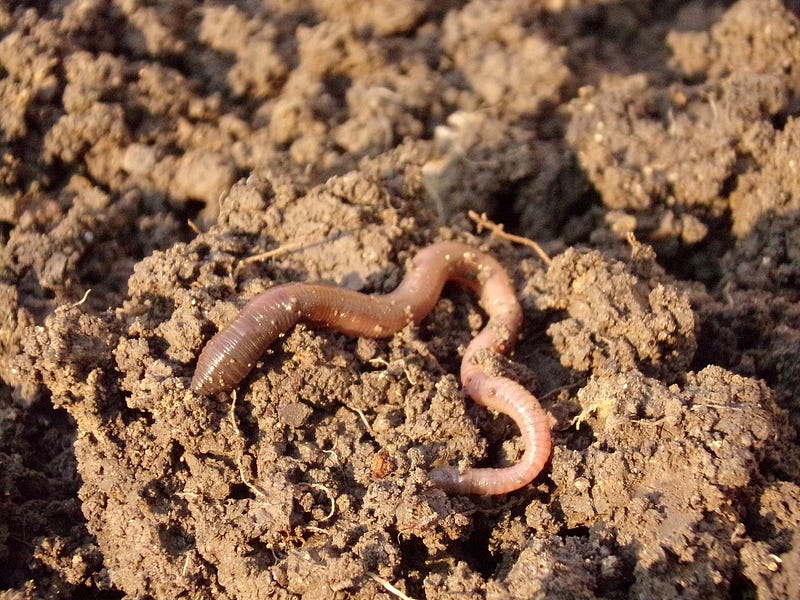Earthworms: Unsung Heroes of Global Grain Production
Written on
Chapter 1: The Role of Earthworms in Agriculture
Recent studies indicate that earthworms play a pivotal role in producing an astonishing 140 million tons of grain annually. If earthworms were categorized as a nation, they would rank among the top producers globally.

Earthworms are commonly found in gardens, fields, and meadows, often appearing after rainfall. Their natural habitat is, of course, the soil. These creatures are essential for soil aeration and fertilization, as they decompose organic matter, releasing vital nutrients necessary for plant growth.
Section 1.1: Insights from Recent Research
A recent article published in "Nature Communications" by researchers from Colorado State University highlights earthworms' greater impact on soil enrichment than previously understood. Steven J. Fonte and his team estimated that these organisms contribute approximately 6.5% of global grain production, which includes staples like wheat, rice, corn, and barley.
The researchers assessed earthworm populations, soil characteristics, and crop yields, drawing comparisons with earlier studies on plant productivity to gauge the impact of earthworms on agricultural output. Their findings suggest that earthworms also aid plants in defending against soil pathogens by enhancing their defense mechanisms, effectively protecting them from diseases that can hinder growth and reduce yields.

Section 1.2: The Scope of Earthworms' Contribution
“The role of earthworms in production could be underestimated,” stated Prof. Fonte in an interview with AFP. He noted that certain populations, particularly in tropical regions, may not have been adequately studied due to funding limitations.
The research highlights that earthworms are vital to soil ecosystems, supporting plant growth in numerous ways. Their contribution to global grain production accounts for about 6.5% of the total, translating to over 140 million tons each year, which is comparable to China's wheat output.
Chapter 2: The Global Impact of Earthworms
According to the researchers, the significance of earthworms is especially pronounced in the Global South, where they are responsible for up to 10% of total grain production, particularly in Sub-Saharan Africa. In Latin America and the Caribbean, their contribution is estimated at 8%.

“Our research indicates that earthworms are crucial to global food production. Investments in policies and agroecological practices that support earthworm populations and overall soil biodiversity can significantly enhance sustainable agricultural practices,” emphasized the American researchers.
The protection of earthworm populations is increasingly vital, especially in light of modern agricultural practices that heavily rely on pesticides, which pose a serious threat to these essential organisms. Previous findings from organizations like the World Society for the Protection of Animals (WSPA) and the Center for Biological Diversity highlight the dangers posed by chemical compounds in herbicides and insecticides to various endangered plant and animal species.

Dear Readers,
I want to bring attention to the challenges faced by content creators like myself on Medium.com. The compensation for our efforts is often insufficient, despite the dedication we put into creating valuable content. If you appreciate my articles, please consider supporting me on my "Buy Me a Coffee" page. Your contributions, no matter how small, can inspire me to keep delivering engaging and thought-provoking content. Thank you for being part of this journey!
